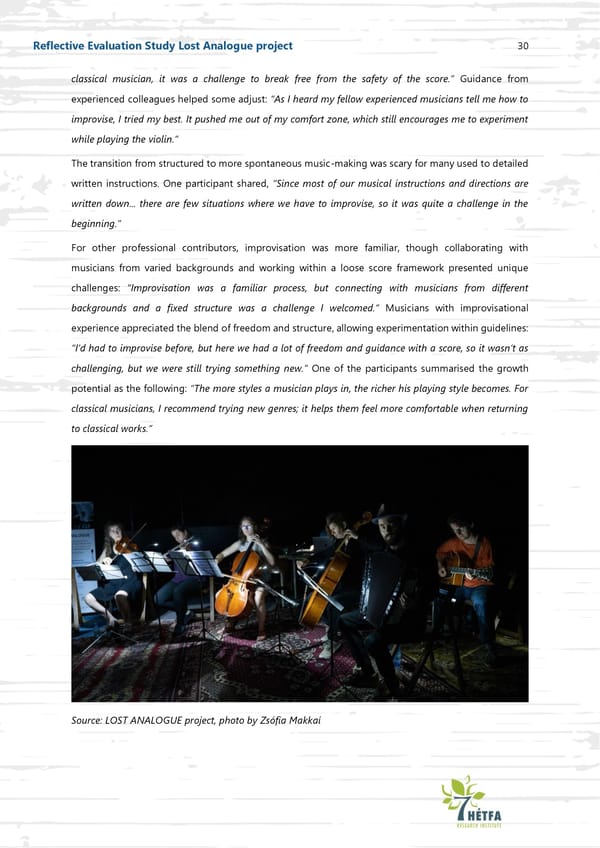30 Reflective Evaluation Study Lost Analogue project classical musician, it was a challenge to break free from the safety of the score. Guidance from experienced colleagues helped some adjust: As I heard my fellow experienced musicians tell me how to improvise, I tried my best. It pushed me out of my comfort zone, which still encourages me to experiment while playing the violin. The transition from structured to more spontaneous music - making was scary for many used to detailed written instructions. One participant shared, Since most of our musical instructions and directions are written down... there are few situations where we have to improvise, so it was quite a challenge in the beginning. For other professional contributors, improvisation was more familiar, though collaborating with musicians from varied backgrounds and working within a loose score framework presented unique challenges: Improvisation was a familiar process, but connecting with musicians from different backgrounds and a fixed structure was a challenge I welcomed. Musicians with improvisational experience appreciated the blend of freedom and structure, allowing experimentation within guidelines: Id had to improvise before, but here we had a lot of freedom and guidance with a score, so it wasnt as challenging, but we were still trying something new. One of the participants summarised the growth potential as the following: The more styles a musician plays in, the richer his playing style becomes. For classical musicians, I recommend trying new genres; it helps them feel more comfortable when returning to classical works. Source: LOST ANALOGUE project, photo by Zsfia Makkai
 Celluloid Connections: Cultivating creative skills through analogue film and musical collaboration Page 30 Page 32
Celluloid Connections: Cultivating creative skills through analogue film and musical collaboration Page 30 Page 32